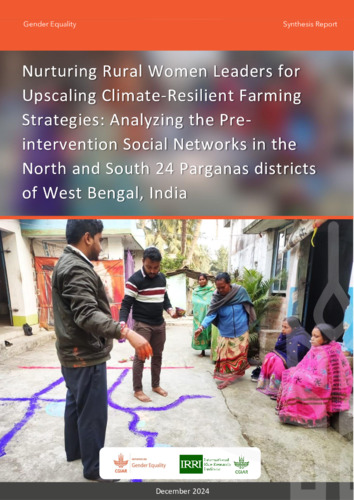Nurturing Rural Women Leaders for Upscaling Climate-Resilient Farming Strategies: Analyzing the Preintervention Social Networks in the North and South 24 Parganas districts of West Bengal, India
Abstract
Using a Social Network Analysis (SNA) framework, this study examines how women livestock farmers in rural West Bengal confront climate change challenges through knowledge sharing and dissemination. It focuses on two regions: Balarampur in South 24 Parganas, where poultry rearing is practiced, and Makaltala in North 24 Parganas, where most farmers are engaged in goat rearing. The women leaders were identified through SNA, examining the factors contributing to their leadership roles, and highlighting their capacity to promote climate-resilient livestock management. The study identified critical information gaps and the pivotal role of community leaders in knowledge exchange. In Balarampur, 14 significant knowledge gaps in poultry management practices were identified, impeding optimal farming outcomes. The SNA revealed that 30 key individuals (or lead farmers) were central nodes for knowledge dissemination. Similarly, in Makaltala, knowledge gaps in goat farming were evident, with 41 community leaders identified as critical for facilitating information flow and promoting sustainable livestock practices. The findings offer policymakers and organizations a strategic framework to address information gaps in rural regions by leveraging the influence and expertise of community leaders. The study was conducted as part of the ‘EMPOWER’ work package of the CGIAR Gender Equality Initiative (HER+) that seeks to empower rural women farmers by developing context-specific SocioTechnical Innovation Bundles (STIBs) aimed at fostering climate-resilient farming practices and enhancing women’s empowerment. These bundles integrate innovative solutions to address local challenges and support sustainable agricultural practices.

